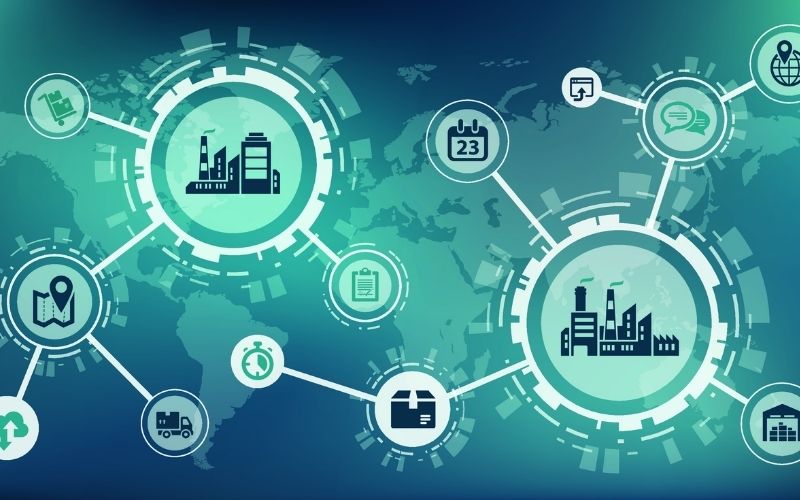Vietnam’s Strategic Position in the Global Supply Chain
Vietnam has steadily evolved from a low-cost manufacturing hub to a critical node in the global supply chain. Its strategic geographic location, robust trade agreements, improving infrastructure, and growing industrial capacity now make Vietnam one of the most attractive sourcing and manufacturing destinations for global companies.
As U.S.-China trade tensions, pandemic-related disruptions, and the demand for supply chain resilience continue to shape global sourcing decisions, Vietnam’s role is becoming even more prominent. In this shifting environment, the right sourcing partner — such as the bestsourcing agent Vietnam or a regional bestsourcing agent Asia — is essential to help businesses unlock Vietnam’s full potential.
In this blog, we will explore why Vietnam is increasingly seen as a strategic supply chain hub and how companies can leverage it effectively.
Vietnam’s Geographic and Logistical Advantages
Gateway to Asia-Pacific Markets
Vietnam’s geographic location offers an enormous strategic advantage:
-
It lies at the center of Southeast Asia.
-
It shares land borders with China, Laos, and Cambodia.
-
It has an extensive coastline (over 3,200 km), giving access to the South China Sea, one of the busiest maritime routes in the world.
From Vietnam, businesses can easily:
-
Export to major global markets such as the U.S. and the EU.
-
Serve fast-growing regional markets like ASEAN, China, Japan, and South Korea.
Modern Ports and Logistics Infrastructure
Vietnam has heavily invested in its logistics capabilities:
-
Major seaports include Hai Phong, Da Nang, and Cai Mep-Thi Vai, handling large container ships.
-
New dry ports and inland container depots enhance cargo flow efficiency.
-
Improvements in road and rail connectivity enable fast inland distribution.
For companies looking to optimize logistics, working with the bestsourcing agent Vietnam ensures seamless access to Vietnam’s port, road, and rail infrastructure.
Trade Agreements That Drive Vietnam’s Global Integration
Vietnam boasts an impressive portfolio of free trade agreements (FTAs):
-
Comprehensive and Progressive Agreement for Trans-Pacific Partnership (CPTPP)
Gives access to markets like Japan, Canada, Australia. -
EU-Vietnam Free Trade Agreement (EVFTA)
Enables tariff-free access to 27 EU countries. -
Regional Comprehensive Economic Partnership (RCEP)
Connects Vietnam to China, Japan, South Korea, and ASEAN members.
Thanks to these agreements, products manufactured in Vietnam often enter key markets tariff-free or with reduced tariffs — a major competitive edge over China and other manufacturing hubs.
Partnering with a bestsourcing agent Asia helps companies maximize these advantages by ensuring compliance with rules of origin and navigating the nuances of each FTA.
Vietnam’s Manufacturing Ecosystem Maturity
Diverse Manufacturing Sectors
Vietnam’s manufacturing base is becoming increasingly diverse and sophisticated. Key sectors include:
-
Electronics: Major brands like Samsung, LG, and Apple suppliers now manufacture in Vietnam.
-
Apparel and textiles: Vietnam is the 2nd largest apparel exporter globally after China.
-
Footwear: Vietnam is a global leader, supplying brands like Nike and Adidas.
-
Furniture: Vietnamese factories are filling supply chain gaps as companies reduce reliance on China.
-
Automotive: The emergence of local EV champion VinFast and auto parts manufacturing clusters.
Growing High-Tech Capabilities
Vietnam is not just about low-cost labor anymore. Its factories are adopting:
-
Automation and smart manufacturing
-
Industry 4.0 practices
-
Advanced quality control
Global companies can now source more value-added, high-quality products from Vietnam.
An experienced bestsourcing agent Vietnam can help businesses tap into this evolving ecosystem and connect with the right manufacturers.
Why Vietnam is Gaining Supply Chain Share from China
U.S.-China Trade Tensions
With ongoing U.S.-China tariffs and the desire to reduce China dependence, companies are shifting production to Vietnam:
-
Electronics firms moving smartphone and laptop assembly lines.
-
Apparel brands relocating sourcing contracts.
-
Furniture manufacturers expanding Vietnamese operations.
Competitive Cost Structure
Vietnam offers:
-
Lower labor costs (approx. 30-50% below coastal China).
-
Affordable industrial land.
-
Attractive tax incentives in industrial parks and special economic zones.
By working with a bestsourcing agent Asia, businesses can structure cross-border supply chains that combine Vietnam with China or other ASEAN countries to optimize costs and flexibility.
Political Stability and Business-Friendly Policies
Vietnam’s government offers:
-
Proactive foreign investment incentives.
-
Transparent tax and customs regimes.
-
Stable macroeconomic management.
As global companies seek geopolitical stability in their supply chains, Vietnam’s consistent policies make it an appealing choice.
How Sourcing Agents Help Unlock Vietnam’s Strategic Potential
Navigating Vietnam’s opportunities requires local expertise and strong factory networks. Here’s where a trusted bestsourcing agent Vietnam delivers value:
✅ Factory Sourcing & Vetting
Agents identify and vet:
-
Factories with the right capabilities and quality standards.
-
Facilities that meet social and environmental compliance.
✅ Cost Negotiation
They help secure competitive pricing through:
-
Volume leverage.
-
Local negotiation knowledge.
-
Ongoing supplier relationship management.
✅ Supply Chain Optimization
Agents structure supply chains to:
-
Take full advantage of Vietnam’s trade agreements.
-
Optimize logistics flows via Vietnam’s strategic ports and borders.
-
Manage multi-country sourcing to diversify risk.
✅ Risk Management & Flexibility
Agents help clients navigate:
-
Geopolitical shifts.
-
Regulatory changes.
-
Labor market dynamics.
They ensure businesses stay agile and resilient in a fast-evolving sourcing environment.
Conclusion: Vietnam’s Role Will Keep Growing
Vietnam’s position in the global supply chain is set to become even stronger in the years ahead:
-
Ongoing infrastructure improvements.
-
Greater high-tech manufacturing capabilities.
-
Expanding FTA network.
-
Rising logistics competitiveness.
-
Continuous government support for export-driven growth.
For global companies, building a Vietnam-based sourcing strategy is no longer optional — it is an essential pillar of supply chain resilience and competitiveness.
To succeed, you need the right partner.
👉 Work with an experienced bestsourcing agent Vietnam or bestsourcing agent Asia to unlock Vietnam’s full potential and stay ahead of global supply chain trends.
Would you like me to also provide:
✅ SEO meta title & description
✅ Suggested internal links
✅ Social media caption
